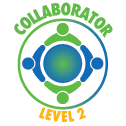Welcome everyone!
8 Posts
Hi,
It's such an honor to be on this webinar with you today. I have worked for over 11 years as a practicing Lean Six Sigma practitioner and have had the privelege of leading the digital transformation of Anheuser-Busch Inbev globally. It is from these experiences that I would like to share my insights on the evolving role of Quality Professionals in the Digital Age!
Best,
Ben
It's such an honor to be on this webinar with you today. I have worked for over 11 years as a practicing Lean Six Sigma practitioner and have had the privelege of leading the digital transformation of Anheuser-Busch Inbev globally. It is from these experiences that I would like to share my insights on the evolving role of Quality Professionals in the Digital Age!
Best,
Ben
10 Replies
354 Posts
Tim Mink, there is no audio. Live chat is using a private discussion board. You can start a new topic to ask a question or start a conversation.
8 Posts
Hi Duke,
Thanks for the question! I strongly believe the core Mission of Quality will not change. Quality will become increasingly important to ensure quality of products, services and processes. We will still as Juran said need to embed quality to satisfy customer requirements. What will change is how that quality is designed, delivered and audited. I see a few key trends in this area:
1. The integration of squad agile teams in new product development & releases. This evolves new product releases (including hardware) from linear processes flow to iterative. The best ways I've seen this done is in a hybrid approach which includes iteration at the early stages, but more traditional waterfall in the deployment stages. Quality still plays a role here, but the core concept of "zero defects on delivery" and that any defect requires correction vs a view that learning is the key asset in the early stages of new product development (recommend Lean Startup model from Eric Ries in this area).
2. Automated quality tools. There has been an increasing sophistication in advanced process control algorithms and technologies like vision systems which enable continuous and automated quality control & inspection.
3. The batch improvement projects where data is gathered, analyzed and actions taken will increasingly be replaced either by automated problem solving tools (e.g. logistics regressions with reinforcement learning mechanisms) or continuous data flow directly to a human to enable more real-time decision making
The key values for the enterprise will increasingly become Speed and Rate to Learn. These are just a few areas I foresee to change as digital becomes more embedded within the enterprise.
Thanks for your question!
Ben
Thanks for the question! I strongly believe the core Mission of Quality will not change. Quality will become increasingly important to ensure quality of products, services and processes. We will still as Juran said need to embed quality to satisfy customer requirements. What will change is how that quality is designed, delivered and audited. I see a few key trends in this area:
1. The integration of squad agile teams in new product development & releases. This evolves new product releases (including hardware) from linear processes flow to iterative. The best ways I've seen this done is in a hybrid approach which includes iteration at the early stages, but more traditional waterfall in the deployment stages. Quality still plays a role here, but the core concept of "zero defects on delivery" and that any defect requires correction vs a view that learning is the key asset in the early stages of new product development (recommend Lean Startup model from Eric Ries in this area).
2. Automated quality tools. There has been an increasing sophistication in advanced process control algorithms and technologies like vision systems which enable continuous and automated quality control & inspection.
3. The batch improvement projects where data is gathered, analyzed and actions taken will increasingly be replaced either by automated problem solving tools (e.g. logistics regressions with reinforcement learning mechanisms) or continuous data flow directly to a human to enable more real-time decision making
The key values for the enterprise will increasingly become Speed and Rate to Learn. These are just a few areas I foresee to change as digital becomes more embedded within the enterprise.
Thanks for your question!
Ben
8 Posts
Hi Tim,
Thanks for your question. In regards to the role of the Quality professional in the Digital Age I see a few common principles:
1. Organizational excellence will not go away, but rather become increasingly relevant to compete and has to be integrated into the digital areas & transformation efforts if the enterprise is to be successful in the digital economy. The best digital implementations & transformation initiatives I have seen involve a Lean perspective as a core tool to identify opportunities, to validate where technology insertion into the process should occur, and then to design and implement the future state improved process. For ABI every technology project was directly mapped to a process level and how it would eliminate waste.
2. I see the organizational design model evolving to one where there is a central Center of Excellence for Quality that involves Strategy, PMO, Governance & Standards. But then quality execution & support is embedded directly into cross-functional teams. The squad model popularized by Spotify is one such example where QA is embedded as a core role on a squad team that is responsible for an entire part of a process or product. Amazon is another example of this organizational design.
3. I do not think quality professionals should ever compromise on their Mission and the importance of quality. I do however think that in the Age of Digital the quality professional should broaden their definition of quality to include areas like Cyber-Security and software releases. There are very specific approaches & tools for things like automated quality testing with software that in my opinion should be in the domain of the Quality Professional.
4. Work upstream in terms of Data. I believe that the quality professional should not just start their projects/approaches by collecting available data but going upstream into how data is collected, organized and become skilled in areas like data engineering. Data is the new gold, and the Quality professionals are perfectly positioned to learn the skills to mine that gold
Best,
Ben
Thanks for your question. In regards to the role of the Quality professional in the Digital Age I see a few common principles:
1. Organizational excellence will not go away, but rather become increasingly relevant to compete and has to be integrated into the digital areas & transformation efforts if the enterprise is to be successful in the digital economy. The best digital implementations & transformation initiatives I have seen involve a Lean perspective as a core tool to identify opportunities, to validate where technology insertion into the process should occur, and then to design and implement the future state improved process. For ABI every technology project was directly mapped to a process level and how it would eliminate waste.
2. I see the organizational design model evolving to one where there is a central Center of Excellence for Quality that involves Strategy, PMO, Governance & Standards. But then quality execution & support is embedded directly into cross-functional teams. The squad model popularized by Spotify is one such example where QA is embedded as a core role on a squad team that is responsible for an entire part of a process or product. Amazon is another example of this organizational design.
3. I do not think quality professionals should ever compromise on their Mission and the importance of quality. I do however think that in the Age of Digital the quality professional should broaden their definition of quality to include areas like Cyber-Security and software releases. There are very specific approaches & tools for things like automated quality testing with software that in my opinion should be in the domain of the Quality Professional.
4. Work upstream in terms of Data. I believe that the quality professional should not just start their projects/approaches by collecting available data but going upstream into how data is collected, organized and become skilled in areas like data engineering. Data is the new gold, and the Quality professionals are perfectly positioned to learn the skills to mine that gold
Best,
Ben
4 Posts
Hi Ben,
Can you speak about the changes that you see for technology? If you can provide examples and how each will transition in the future and for what reason that would be greatly appreciated.
Thanks!
Mason
Can you speak about the changes that you see for technology? If you can provide examples and how each will transition in the future and for what reason that would be greatly appreciated.
Thanks!
Mason
1 Posts
Hello Ben!
For a small organization, what do you recommend to encourage creativity and innovation?
Thank you
For a small organization, what do you recommend to encourage creativity and innovation?
Thank you
8 Posts
Hi Cristina,
Thanks for your question! I would provide a few recommendations:
1. We have to instill the belief that anyone in the organization can have a great idea, anytime. This presupposition really opens us up to great ideas coming from anywhere.
2. We have to create the tools for people to share these ideas. Ideally, this is a digital tool so past ideas are also collected and can be re-worked or combined based on new business challenges.
3. Create competition & gamification mechanisms. This could be an online portal for example where key business challenges are posted and people can iterate their ideas over let's say a 48 hr window and the winner receives formal recognition and a prize.
4. Create a common workflow. Create a common set of processes to enable innovation. This may sound counter-intuitive, but this standardization (which can include agile sprints/innovation iterations) will allow the organization to have a common language for innovation and to manage expectations with senior management on where an idea is in the workflow and how that process connects downstream to value realization.
5. Identify sponsors - identify who at the executive level is going to support, fund, remove roadblocks for this innovation program. Inevitably as market or cost pressures create urgencies the business will focus on more short-term value realization efforts. Innovation is absolutely critical and needs to have an executive level sponsorship to avoid this tendency to avoid enabling the future success of the organization for today's fires.
6. Design the organization to support innovation. Innovation needs to have people with time available to execute & develop innovative ideas. There are several models for this (e.g. central, distributed, hybrid are the most common). The model that worked for ABI was a dedicated COE coordinating an innovation agenda centrally, innovation enthusiasts self-selecting across the organization (based on participation in challenges for example), a routine SteerCo with executive level sponsorship tracking ideas and conversion to projects & value realization, and platforms to enable collaboration globally in real-time and to post new challenges.
A great reference book would be Agile Innovation (Langdon Morris) or Innovation Prowess (George Day) which I think would help give some tools & strategies for how to embed this into your organization on top of the above list.
Best,
Ben
Thanks for your question! I would provide a few recommendations:
1. We have to instill the belief that anyone in the organization can have a great idea, anytime. This presupposition really opens us up to great ideas coming from anywhere.
2. We have to create the tools for people to share these ideas. Ideally, this is a digital tool so past ideas are also collected and can be re-worked or combined based on new business challenges.
3. Create competition & gamification mechanisms. This could be an online portal for example where key business challenges are posted and people can iterate their ideas over let's say a 48 hr window and the winner receives formal recognition and a prize.
4. Create a common workflow. Create a common set of processes to enable innovation. This may sound counter-intuitive, but this standardization (which can include agile sprints/innovation iterations) will allow the organization to have a common language for innovation and to manage expectations with senior management on where an idea is in the workflow and how that process connects downstream to value realization.
5. Identify sponsors - identify who at the executive level is going to support, fund, remove roadblocks for this innovation program. Inevitably as market or cost pressures create urgencies the business will focus on more short-term value realization efforts. Innovation is absolutely critical and needs to have an executive level sponsorship to avoid this tendency to avoid enabling the future success of the organization for today's fires.
6. Design the organization to support innovation. Innovation needs to have people with time available to execute & develop innovative ideas. There are several models for this (e.g. central, distributed, hybrid are the most common). The model that worked for ABI was a dedicated COE coordinating an innovation agenda centrally, innovation enthusiasts self-selecting across the organization (based on participation in challenges for example), a routine SteerCo with executive level sponsorship tracking ideas and conversion to projects & value realization, and platforms to enable collaboration globally in real-time and to post new challenges.
A great reference book would be Agile Innovation (Langdon Morris) or Innovation Prowess (George Day) which I think would help give some tools & strategies for how to embed this into your organization on top of the above list.
Best,
Ben








